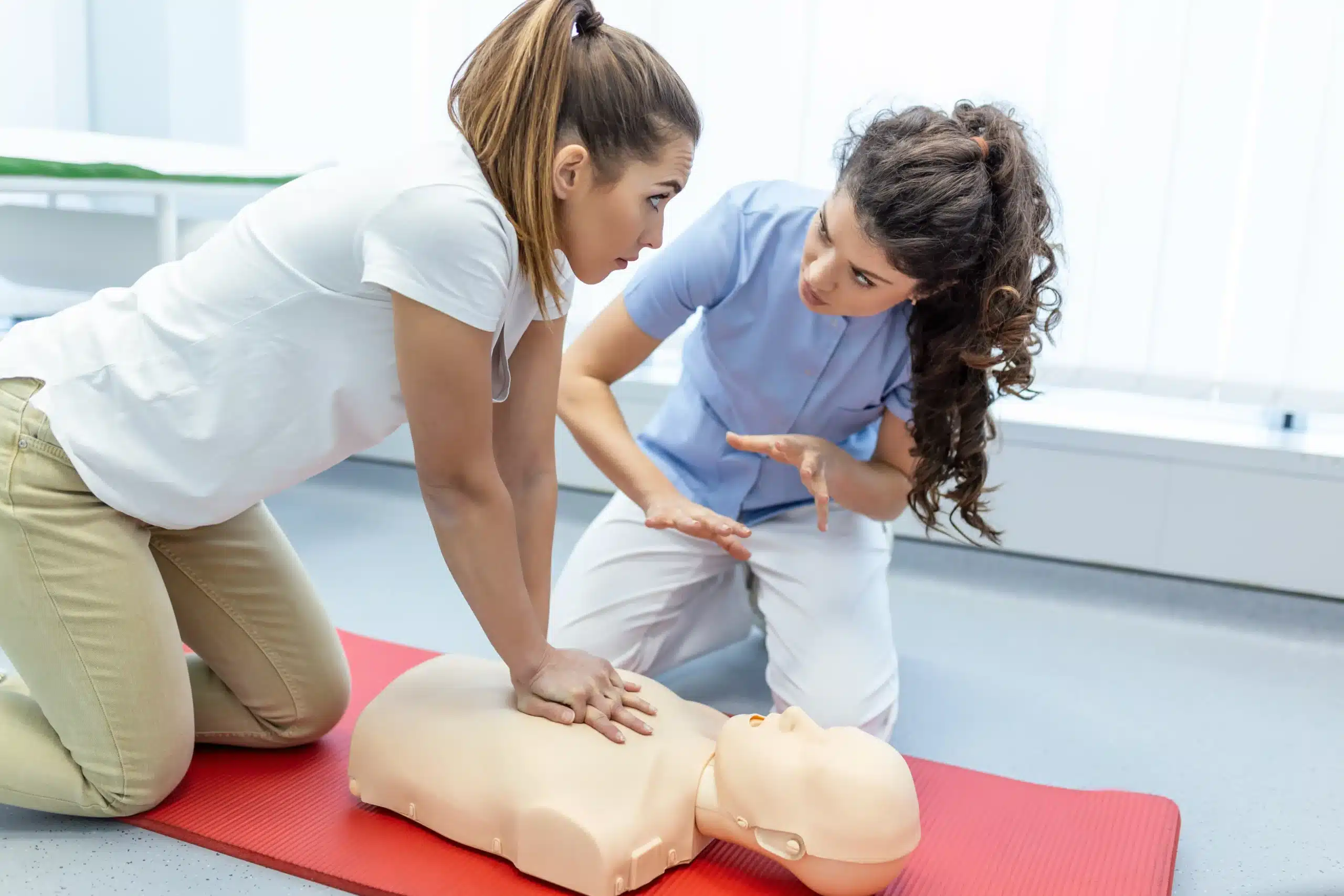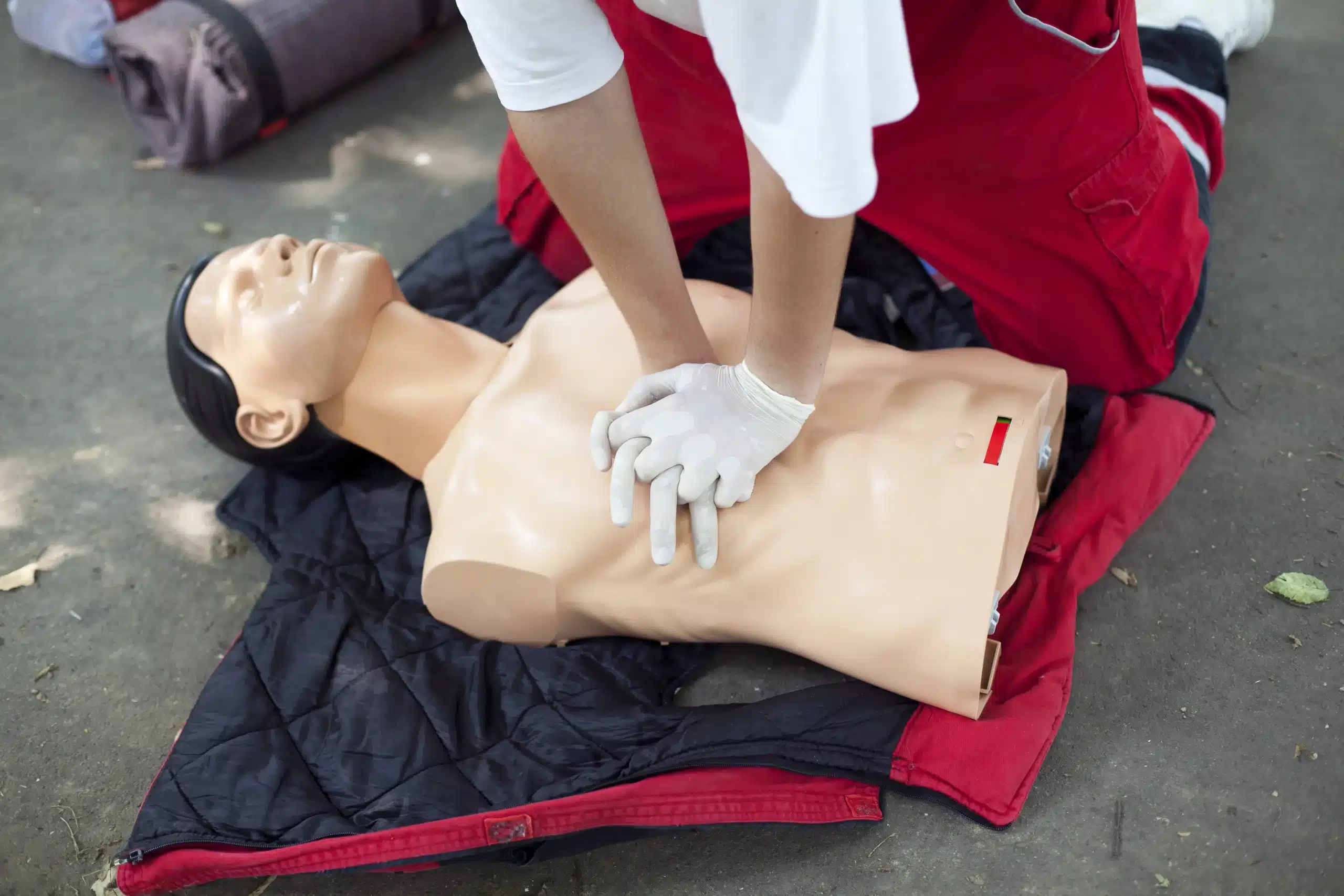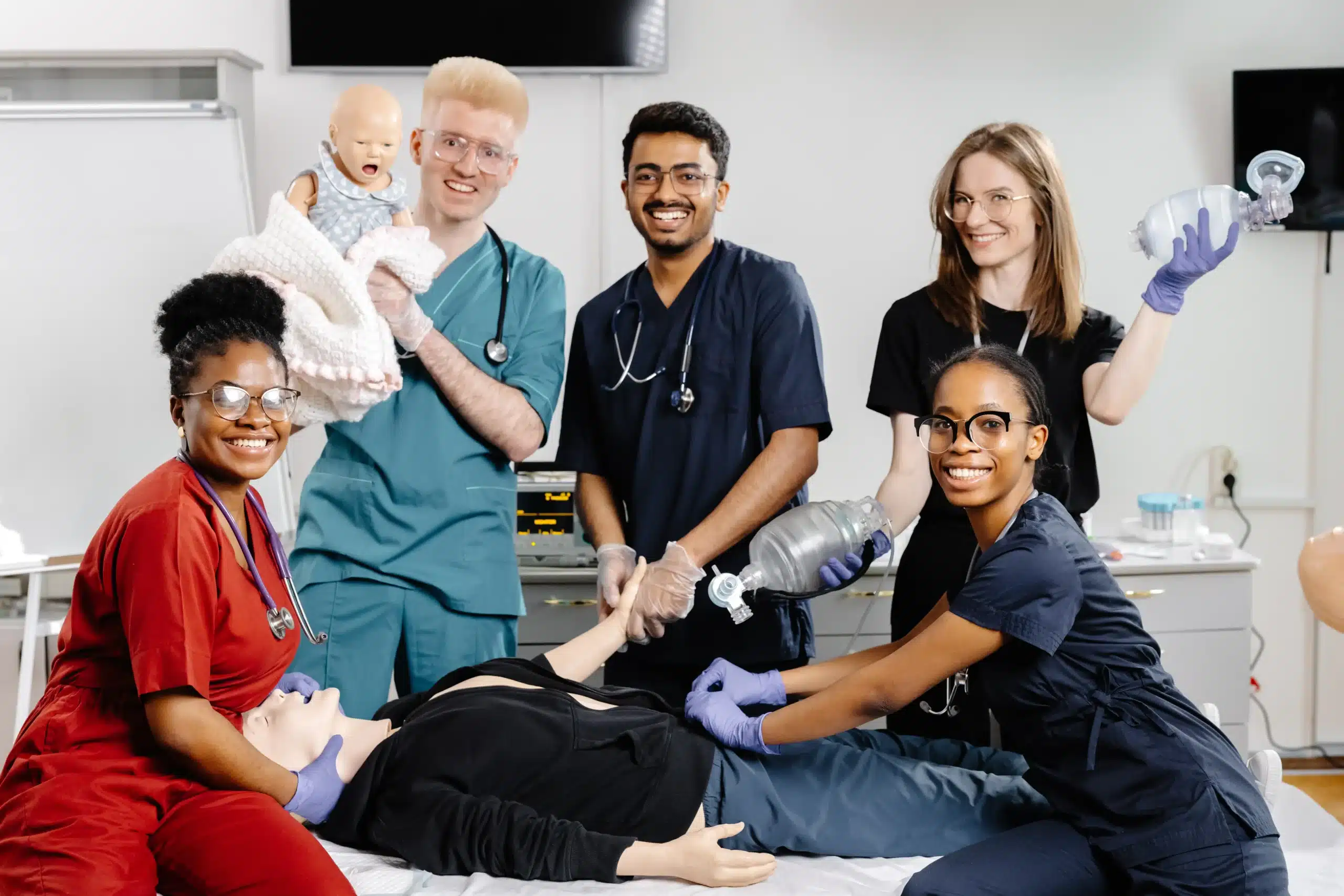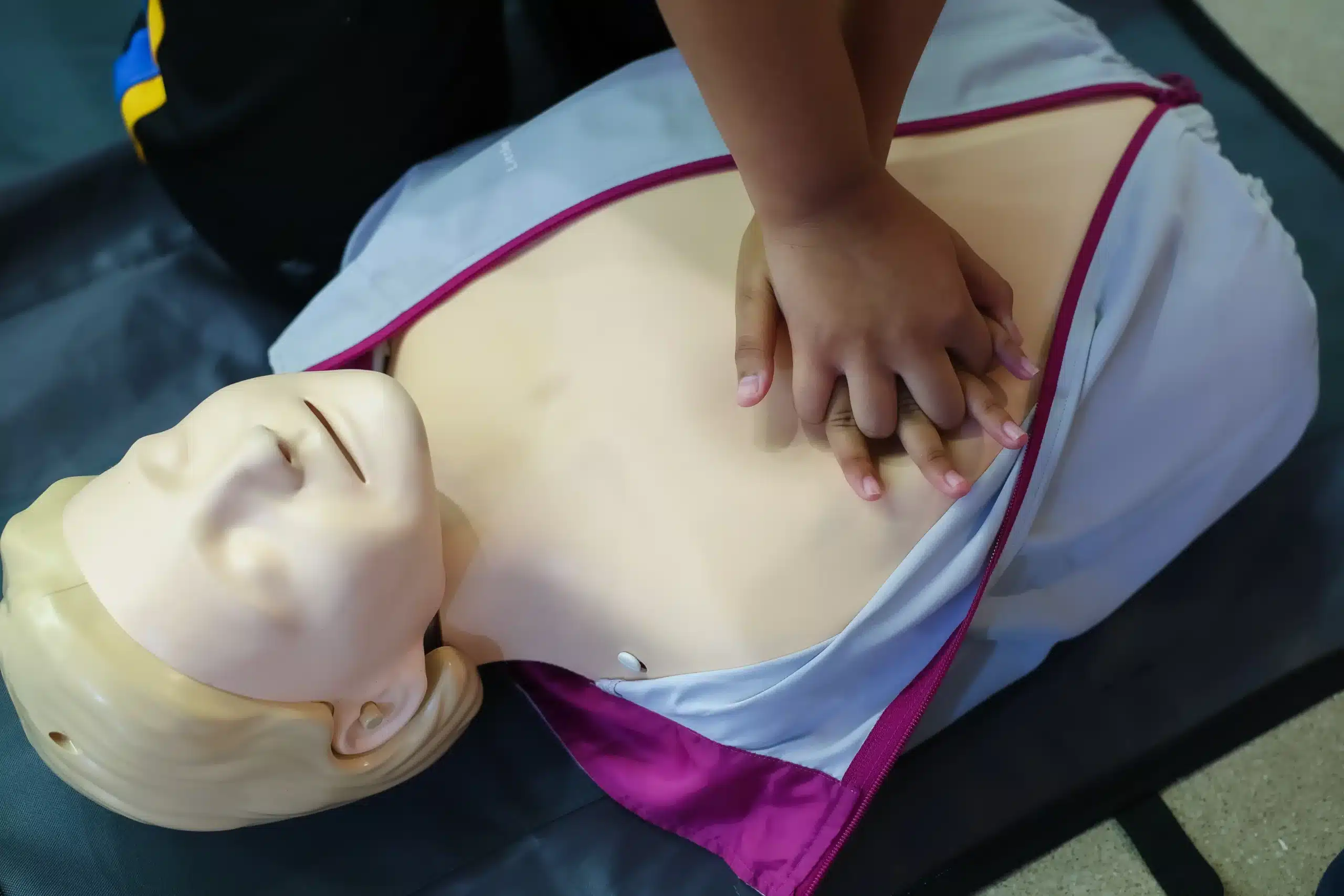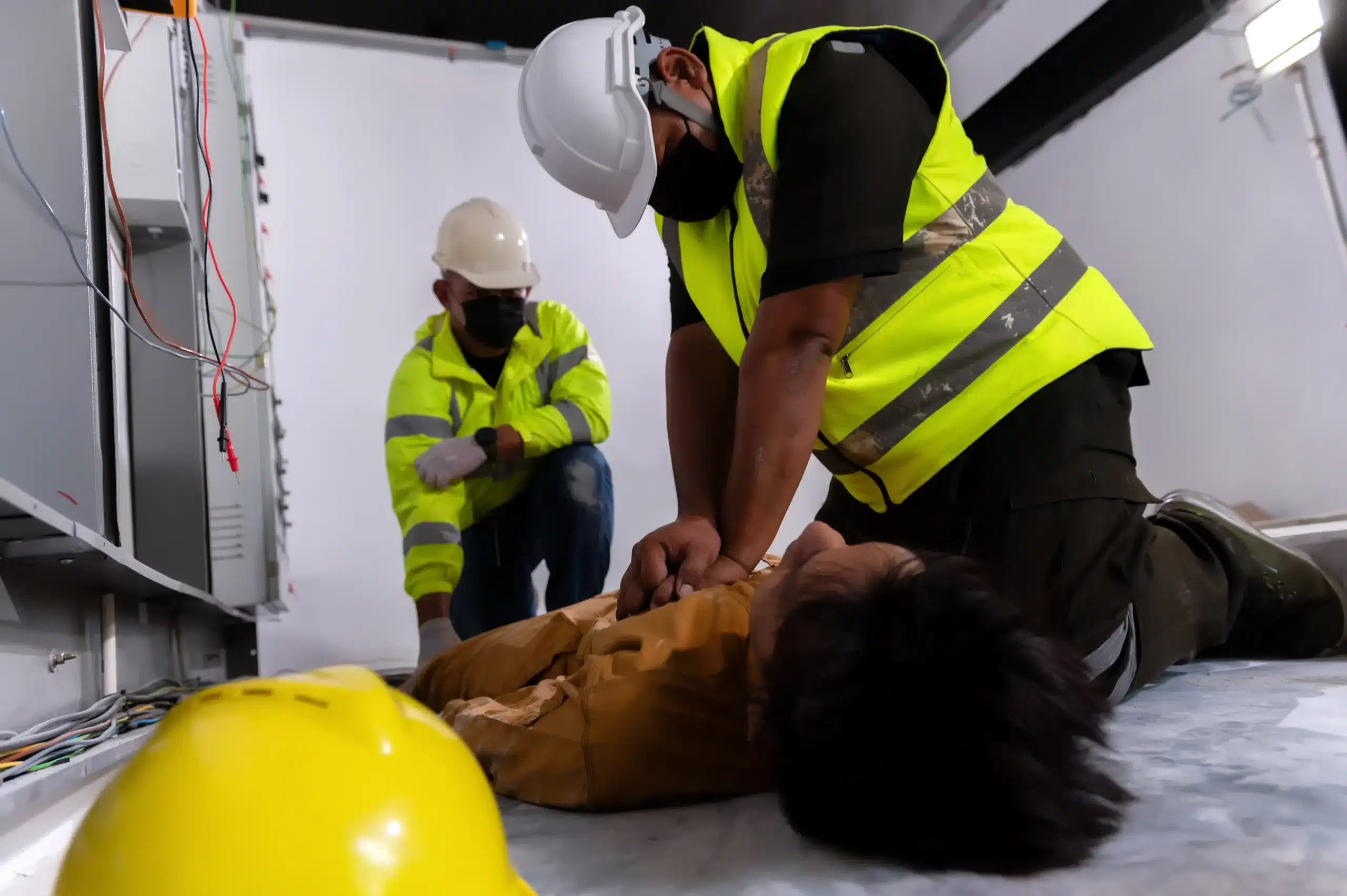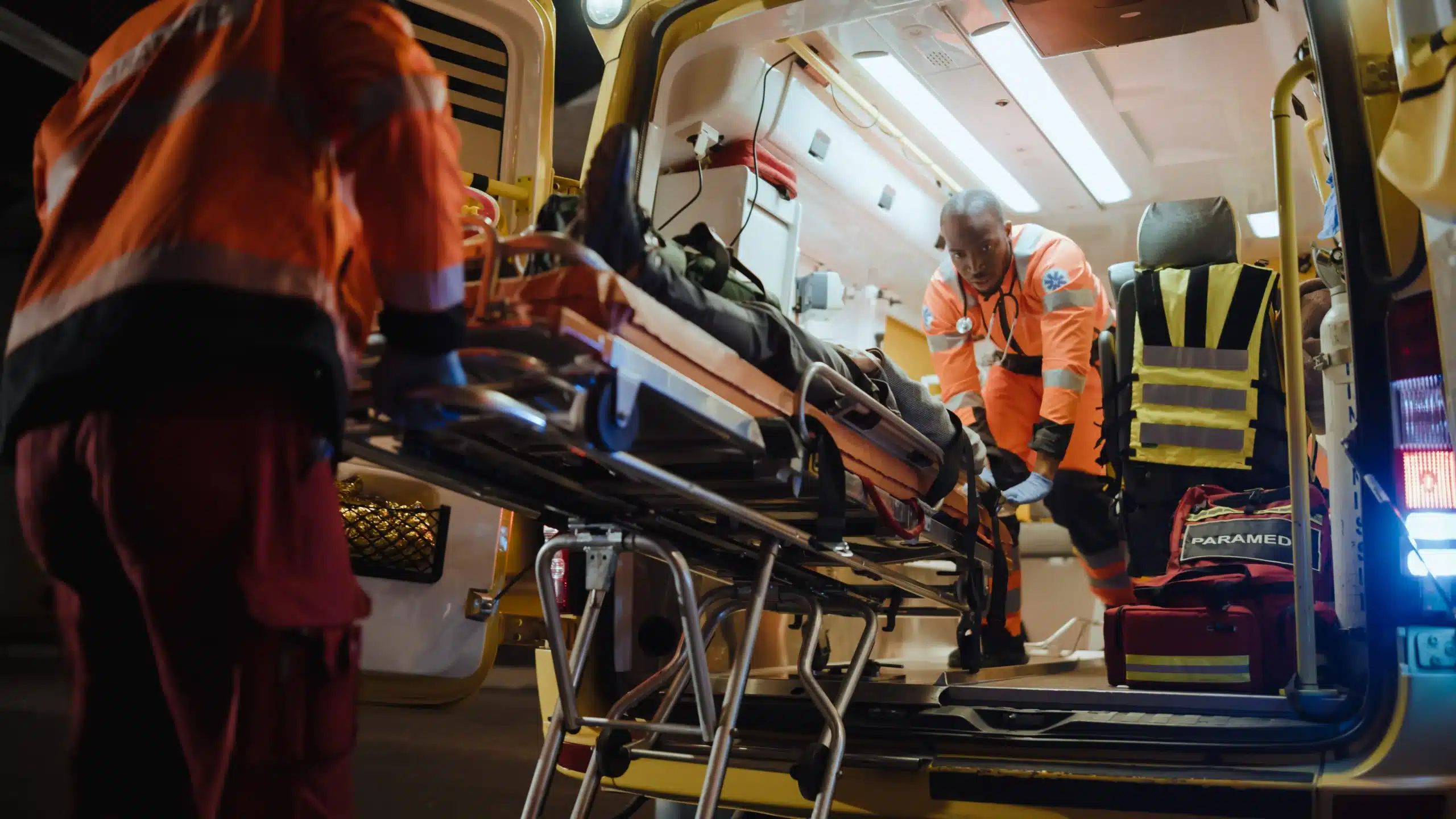Your BLS certification is more than just a piece of paper; it’s a symbol of your dedication to saving lives. But like any important skill, it needs regular refreshing. If you’re searching for “AHA BLS Renewal near me,” this guide will help you find the right course and provider to keep your skills sharp. We’ll cover everything from the importance of BLS to the different renewal options available, and even discuss how staying certified can benefit your career.
Key Takeaways
- A current BLS certification opens doors: It’s often a job requirement in healthcare and other fields, showing employers you’re prepared for emergencies. Renewing demonstrates your commitment to providing high-quality care.
- Choose your BLS renewal provider carefully: Select an AHA Training Center with convenient class times and formats—online, in-person, or blended learning—that fit your schedule and learning style. Don’t forget to compare costs.
- Preparation is key for a smooth BLS renewal: Knowing what to expect, gathering necessary materials, and reviewing key concepts beforehand can make your renewal experience more efficient and less stressful.
What is AHA BLS Renewal?
The American Heart Association (AHA) Basic Life Support (BLS) for Healthcare Providers course equips healthcare professionals with the skills to respond to life-threatening emergencies. It covers essential techniques like CPR, recognizing and responding to cardiac arrest, and using an AED. Think of BLS as your foundational toolkit for providing immediate care in critical situations. AHA BLS Renewal is simply the process of recertifying these skills to ensure they’re up-to-date and you’re ready to respond effectively. The BLS Renewal course takes about three hours to complete, including hands-on practice and a skills test.
Why Renew Your BLS Certification?
Your BLS certification is valid for two years. There’s no grace period, so it’s essential to renew promptly. Maintaining a current BLS certification is often a requirement for employment in healthcare and fulfills continuing education requirements. A current certification demonstrates your commitment to providing excellent patient care and maintaining your competency in life-saving techniques. It also ensures you’re following the most recent AHA guidelines, which are regularly updated. After completing the renewal course, you’ll receive a BLS Provider Course Completion Card, valid for another two years, confirming your readiness to respond to emergencies. Think of renewal as an investment in your career and a validation of your skills.
Find AHA BLS Renewal Providers Near You
Finding the right provider for your BLS renewal is key to a smooth and valuable learning experience. Whether you’re a nurse, doctor, medical student, EMT, or other healthcare provider looking to renew your American Heart Association (AHA) Basic Life Support (BLS) certification, this section will guide you.
Choosing a Provider: What to Look For
When selecting a BLS renewal provider, consider these factors:
- Accreditation: Ensure the provider is an authorized AHA Training Center. This guarantees the course meets the AHA’s standards, and your certification will be valid. You can usually find this information on the provider’s website.
- Course Format: The AHA offers BLS courses in several formats, including blended learning (online coursework combined with in-person skills practice) and traditional instructor-led classes. Choose the format that best suits your learning style and schedule.
- Instructor Experience: Look for experienced instructors who can provide clear instruction and personalized feedback. Reading reviews or testimonials can offer insights into the instructor’s teaching style.
- Location and Schedule: Select a provider with a convenient location and class times that fit your schedule. Consider factors like commute time and parking availability.
- Cost: Compare prices from different providers. Remember that the lowest price isn’t always the best value. Look for a balance of affordability and a quality learning experience. Check if the provider offers any discounts, like our Low Price Guarantee.
Top Local Providers
Here are some common places to find AHA BLS renewal courses:
Safety Training Seminars
Local businesses specializing in safety training often offer AHA BLS renewal courses. These providers often offer flexible scheduling and personalized attention. For example, Safety Training Seminars in Visalia, CA provides BLS courses along with First Aid and other certifications. We’re proud to serve Visalia, Tulare, and Delano, CA.
AHA Training Centers
Many hospitals, medical centers, and community colleges serve as official AHA Training Centers. These centers offer a wide range of AHA courses, including BLS, ACLS, and PALS. Check the AHA website for a list of Training Centers near you.
Hospitals and Medical Centers
Hospitals and medical centers frequently offer BLS renewal courses for their staff and the surrounding community. These courses are often taught by experienced medical professionals. Contact your local hospital or medical center to inquire about available courses.
Community Colleges
Community colleges often provide affordable BLS renewal courses through their continuing education programs. These courses are typically open to the public and offer flexible scheduling.
Red Cross Training Centers
While the Red Cross offers its own CPR and First Aid certifications, they are not authorized providers of AHA BLS courses. If you need AHA BLS certification, choose an AHA Training Center. You can find a list of authorized providers on the AHA website.
Course Formats and Prerequisites
Before you sign up for your BLS renewal course, it’s helpful to understand the different formats available and any prerequisites. Knowing what to expect streamlines the process and helps you choose the best option for your schedule and learning style.
Online Renewal
Online renewal courses offer a convenient way to refresh your BLS knowledge. These courses are typically self-paced and entirely online, allowing you to study whenever and wherever it’s best for you. All study materials are usually included with your purchase. Some online courses, like the HeartCode® BLS Online program, use adaptive learning technology, creating a personalized learning path that adjusts to your performance.
In-Person Renewal
In-person renewal courses provide a hands-on learning experience with a certified instructor. These classes usually include a written exam and skills evaluation, ensuring you’re up-to-date on the latest AHA guidelines. If you prefer a more interactive learning environment and appreciate direct feedback, an in-person renewal might be a good fit. Check with a local provider like Safety Training Seminars for in-person renewal options. You can find their BLS course schedule here.
Blended Learning
Blended learning combines online learning with hands-on skills practice. You’ll complete the cognitive portion of the course online, then participate in a virtual or in-person skills check. This blended approach offers a balance between independent study and guided practice.
Enrollment Prerequisites
To enroll in a BLS renewal course, you’ll generally need a current, valid BLS Provider certification card. This confirms you’ve previously completed the full BLS course and have a foundation in life-saving techniques. Contact your chosen training center to confirm their specific requirements and any required continuing education. Be prepared to demonstrate your competency through a written and/or skills exam.
Costs and Discounts
Renewing your BLS certification is an investment in your career and the safety of those around you. Understanding the costs and potential savings makes the process smoother. Let’s break down typical renewal expenses, factors that influence pricing, and available discounts.
Typical Renewal Costs
BLS renewal costs typically range between $55 and $70. Some providers, like CPR Certification Houston, offer BLS renewal for around $60. Others, like the Critical Care Training Center, may have a base fee of $55, but with textbooks, the total can reach $75-$80. Always confirm the total price upfront, including any study materials or online components. Providers like Star CPR may also offer different packages, such as a Heartcode BLS renewal, which can be slightly more expensive. Check our BLS course options in Visalia for current prices.
Factors Affecting Cost
Several factors influence BLS renewal course costs. The course format plays a significant role. Courses requiring an online portion before an in-person skills session can impact pricing. Including a pre-test or other materials can also affect the overall cost. Finally, the training’s length and depth contribute to price variations. More comprehensive courses covering advanced techniques may have higher fees. All Heart Atlanta is a good example of how course content and length influence pricing.
Discounts and Promotions
Many training centers offer discounts, so it’s always worth asking! Some providers, like All Care Health Services, offer student discounts. Others, such as Express Training Solutions, may have promotions with a specific code. Websites like CPR Select and American BLS often feature course coupon codes. Check with your chosen provider about applicable discounts. Contact Safety Training Seminars in Visalia—we offer a low price guarantee for our courses in Tulare County.
Prepare for Your BLS Renewal
Getting ready for your BLS renewal doesn’t have to be stressful. With a little preparation, you can walk into class feeling confident and ready to refresh your lifesaving skills. Here’s what you need to know:
What to Bring to Class
First things first, you’ll need your current BLS provider card. This confirms your existing certification, a prerequisite for taking a BLS renewal course. Don’t worry about bringing your old textbook—updated materials are usually provided as part of the renewal class. A pen and notepad can be handy for jotting down notes, and of course, bring a photo ID.
Common Challenges and Solutions
One common challenge is simply finding the time to renew. Luckily, BLS renewal courses are offered in several formats. You can take an in-person class, complete the renewal online, or even choose a blended learning option that combines online modules with in-person skills practice. It’s important to avoid common mistakes like missing deadlines, so mark your renewal date on your calendar and register for your class in advance.
Study Resources and Tips
Even though it’s a renewal, it’s still a good idea to review the material. Many providers offer online study resources or practice tests. Take advantage of these tools to brush up on your skills and knowledge. You can also review the most recent American Heart Association guidelines for BLS. Remember, the goal is to maintain your skills and ensure you’re providing the best possible care.
Make the Most of Your BLS Renewal
Getting recertified in BLS is more than just checking a box; it’s a chance to refresh your life-saving skills and stay on top of the latest advancements in emergency care. Here’s how to make the most of your BLS renewal:
When to Renew
Your BLS certification is valid for two years. There’s no grace period after it expires, so plan to renew your BLS certification before the expiration date. Check your card for the expiration date and mark your calendar to begin the renewal process a few months in advance. This gives you time to find a class that fits your schedule.
Stay Updated on AHA Guidelines
One of the best parts of BLS renewal is the opportunity to refresh your knowledge of the latest American Heart Association (AHA) guidelines. These guidelines are regularly updated to reflect the most effective techniques for providing CPR and other life-saving measures. Your renewal course will cover any changes to the guidelines, ensuring you’re equipped with the most current information. This commitment to staying updated is crucial for providing high-quality care in emergency situations.
Maintain Your Skills
Regular practice is key to maintaining proficiency in any skill, and BLS is no different. The hands-on component of your BLS renewal course lets you practice essential techniques like chest compressions, rescue breaths, and using an AED. This refresher helps build your muscle memory and confidence, so you can respond effectively in a real-life emergency. Consistent practice ensures you can perform these skills quickly and efficiently when they matter most.
Career Benefits of Current BLS Certification
Having a current Basic Life Support (BLS) certification from the American Heart Association (AHA) isn’t just a checkbox on a job application—it’s a powerful tool that can open doors and significantly enhance your career prospects. Whether you’re a seasoned healthcare professional or just starting out, maintaining your BLS certification demonstrates your commitment to providing high-quality patient care and staying up-to-date with the latest life-saving techniques. Let’s explore how a current BLS certification can benefit your career.
BLS in Different Professions
Across various healthcare professions, BLS certification is often a mandatory requirement. The AHA BLS for Healthcare Providers course equips professionals with the essential skills to respond effectively in emergencies. From doctors and nurses to paramedics and physical therapists, having a current BLS certification validates your skills in delivering immediate care during critical situations. It signals to employers and patients that you possess the knowledge to handle life-threatening emergencies. Even in professions outside of traditional healthcare, such as education, childcare, and fitness, BLS certification can be a valuable asset, demonstrating your preparedness to respond to emergencies and ensure the safety of those in your care. For example, many childcare centers require their staff to hold current BLS certifications. CPR Visalia offers EMSA Health & Safety Training for childcare providers.
Using BLS Skills in Real Life
Beyond the professional sphere, BLS skills can be invaluable in everyday life. Knowing how to perform CPR, use an AED, and provide basic life support can make a profound difference in a medical emergency. Whether it’s a family member experiencing a cardiac event or a stranger collapsing in public, your BLS training empowers you to act quickly and confidently. The ability to renew your BLS certification online offers flexibility and convenience, ensuring your skills remain sharp. CPR Visalia offers a variety of BLS courses in Visalia. Upon successful completion of the course, you’ll receive an AHA BLS Provider eCard, valid for two years, signifying your readiness to respond to emergencies and potentially save lives. This peace of mind, knowing you have the skills to handle unexpected situations, is a significant personal benefit of maintaining your BLS certification.
Related Articles
- BLS Renewal in Tulare: Your Guide – Visalia CPR Classes
- BLS Recertification Near Me: A Practical Guide – Visalia CPR Classes
- BLS Certification in Tulare County: Your Complete Guide – Visalia CPR Classes
- BLS Certification in Walnut Creek: Your Guide – Visalia CPR Classes
- BLS Certification in Concord: The Complete Guide – Visalia CPR Classes
Frequently Asked Questions
How often do I need to renew my AHA BLS certification? AHA BLS certifications are valid for two years. It’s important to renew before the expiration date on your card as there’s no grace period.
What’s the difference between online, in-person, and blended BLS renewal courses? Online renewal courses are entirely online and self-paced, offering flexibility. In-person courses provide hands-on training with an instructor. Blended learning combines online coursework with an in-person skills session. Choose the format that best suits your learning style and schedule.
What should I expect to pay for BLS renewal? BLS renewal costs typically range from $55 to $80, depending on the provider, course format, and included materials. Always confirm the total price before registering. Don’t hesitate to ask about potential discounts. CPR Visalia offers a low price guarantee for courses in Tulare County.
What do I need to bring to my BLS renewal class? Bring your current BLS provider card, a photo ID, and something to take notes with. Updated course materials are usually provided.
Why is it important to keep my BLS certification current? A current BLS certification is often a job requirement in healthcare and many other fields. It demonstrates your commitment to patient safety and validates your skills in providing life-saving care. Staying up-to-date on the latest AHA guidelines ensures you’re prepared to respond effectively in emergencies.
